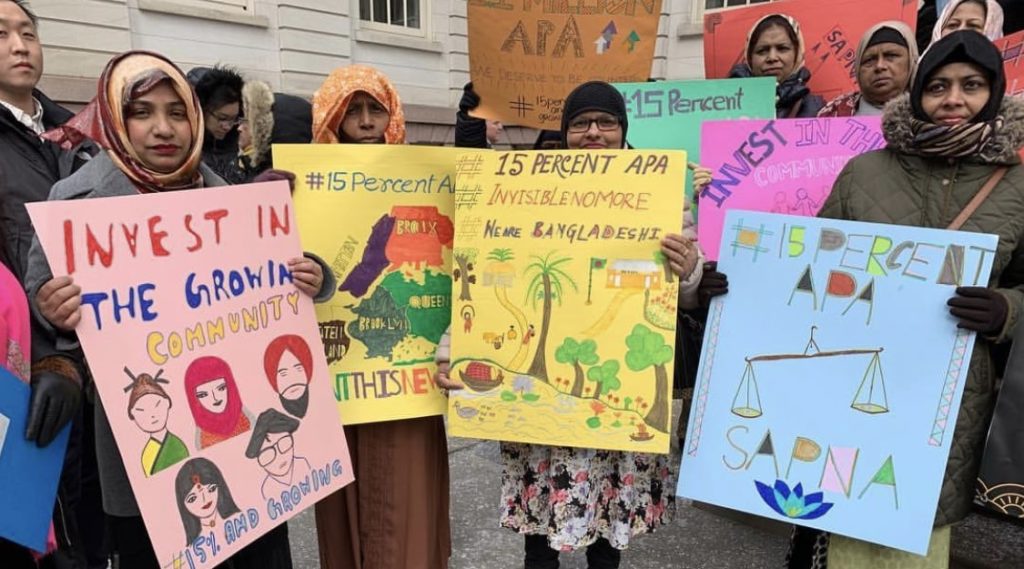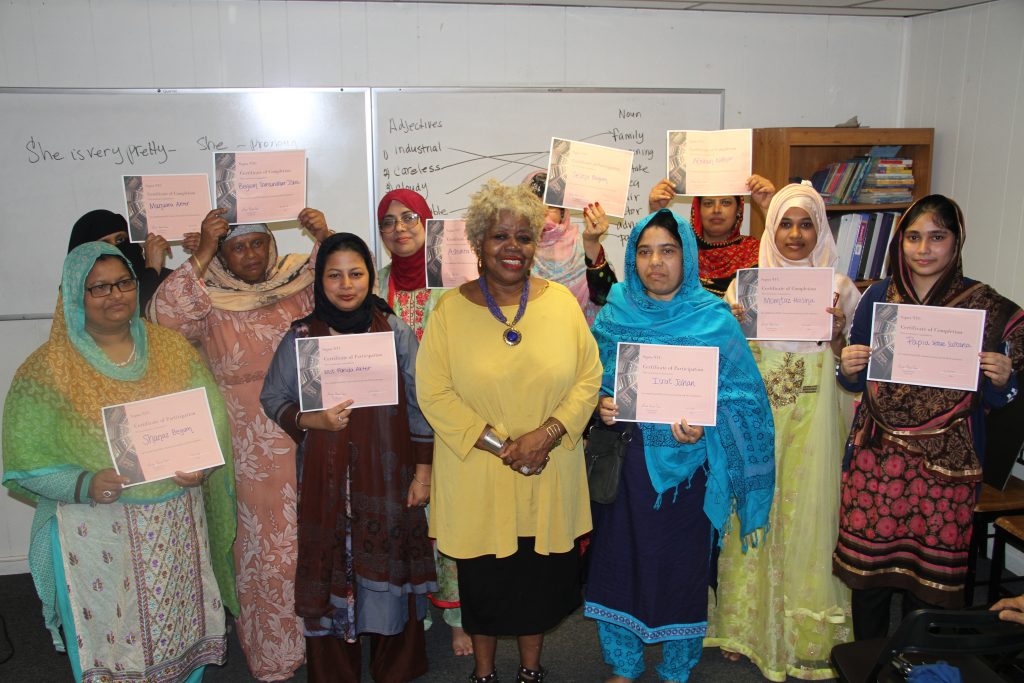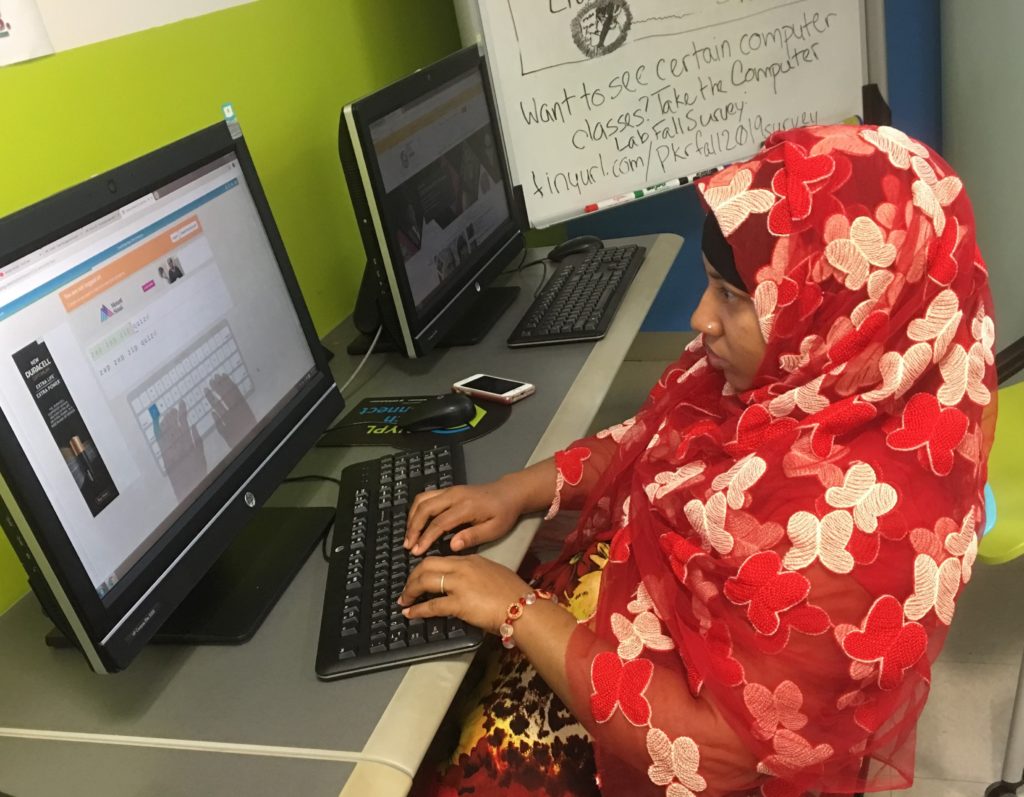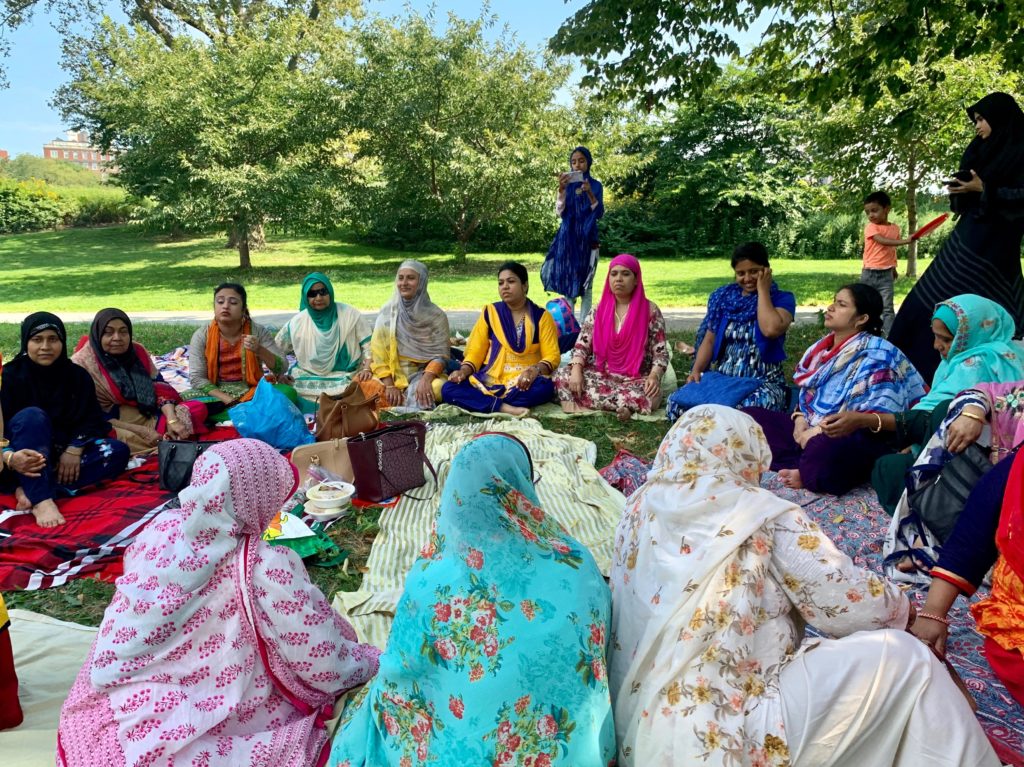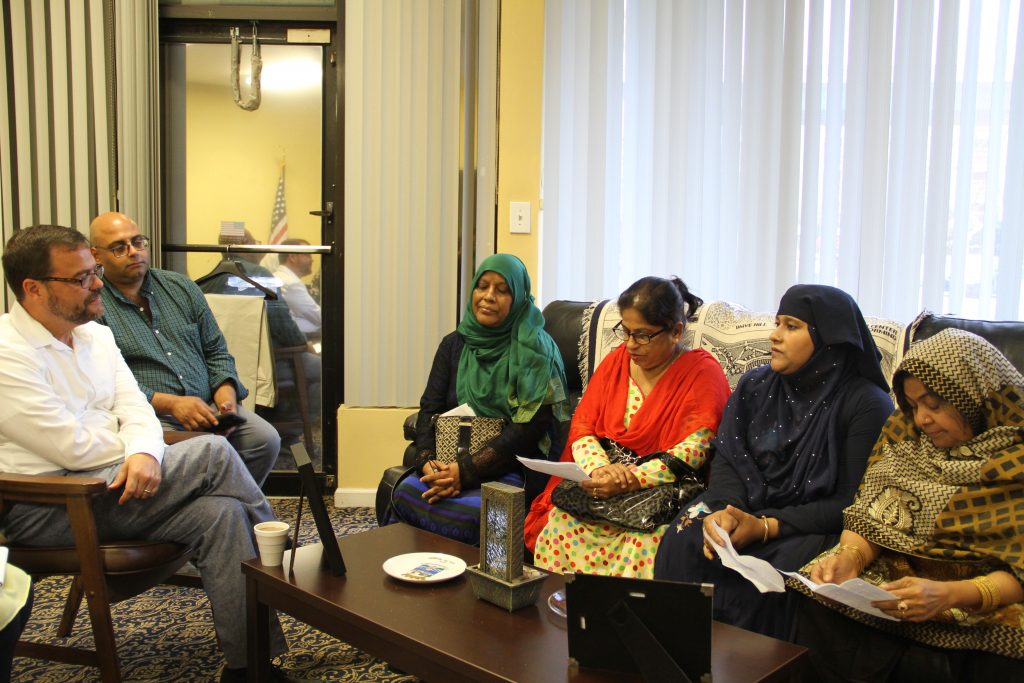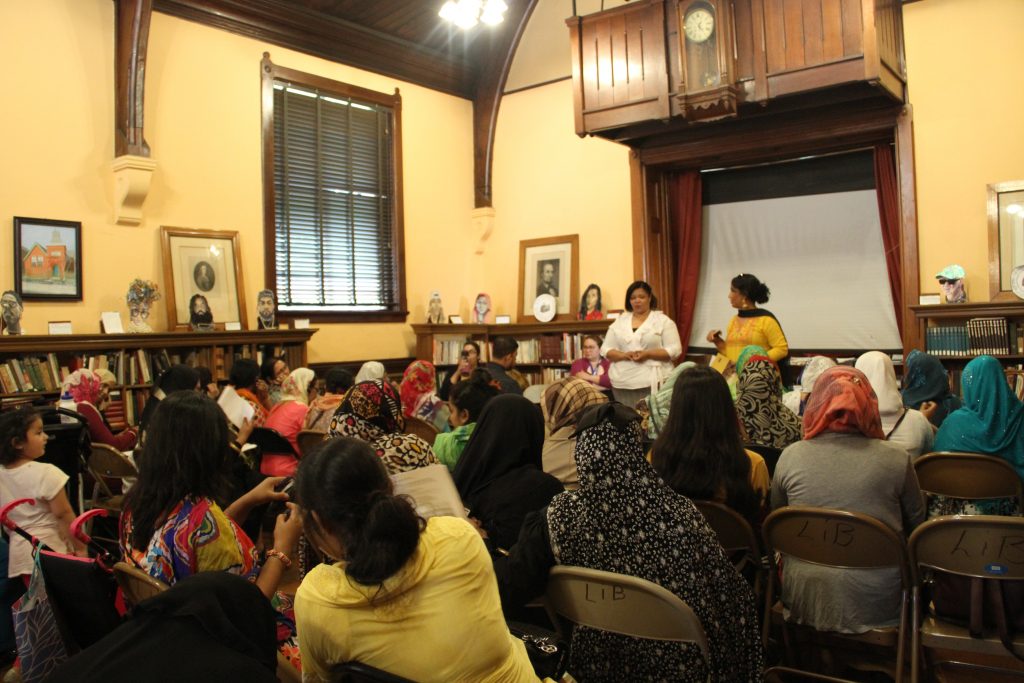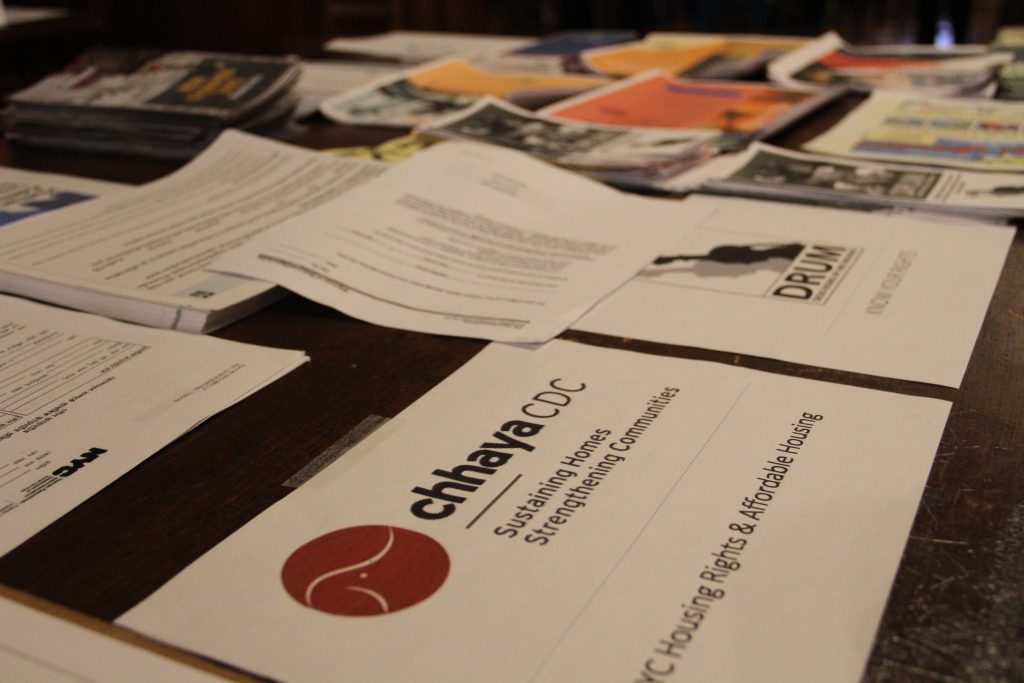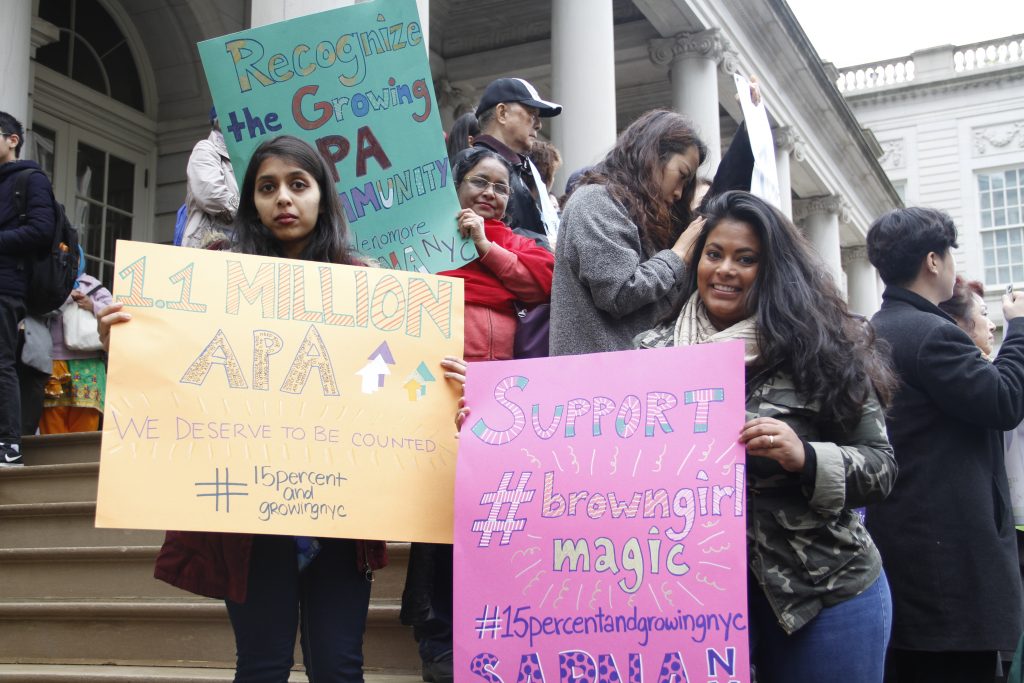At Sapna we believe that health and empowerment are intricately intertwined and to truly make a lasting impact on the health of our community, we must work holistically and include empowerment and advocacy as core values of our organization. As such, our empowerment programming and advocacy work are an integral part of Sapna’s mission. For us, empowerment means gaining knowledge,access, and a self-awareness of one’s own capabilities and then harnessing that power to create positive change. By uplifting women and encouraging them to not only recognize but to act upon their power, we are working towards a vision of women building healthy communities with peace and justice.
A key component of our program design is Action Groups, in which women from the community work together to address a particular concern or health issue. After receiving education on the issue, services, treatment, etc., Action Group members receive additional training on communication, outreach, and leadership. They then go into their communities to spread information throughout their networks and to reach and educate isolated women in need of services. They use their own empowerment to empower the women around them.
In addition to working on empowering our community through direct programming, we also believe strongly in working to raise the voices of our women. Given that many of the women we work with are vulnerable due to their gender, religion, immigration status, socio-economic group, and health we recognize that advocating for themselves isn’t necessarily feasible. As such, we work with other organizations and agencies to represent the needs and beliefs of our community. Sapna leadership is committed to advocating for the rights of our women and for augmenting their voices and relaying their concerns to our city, state, and national representatives.

